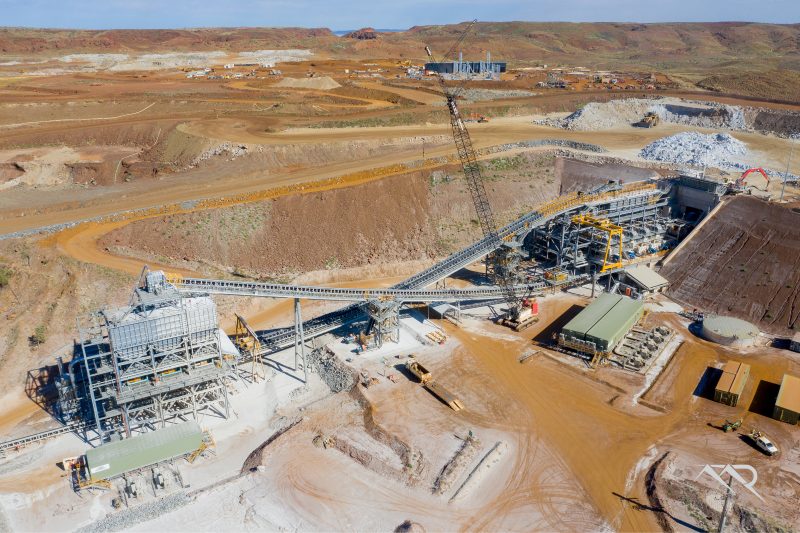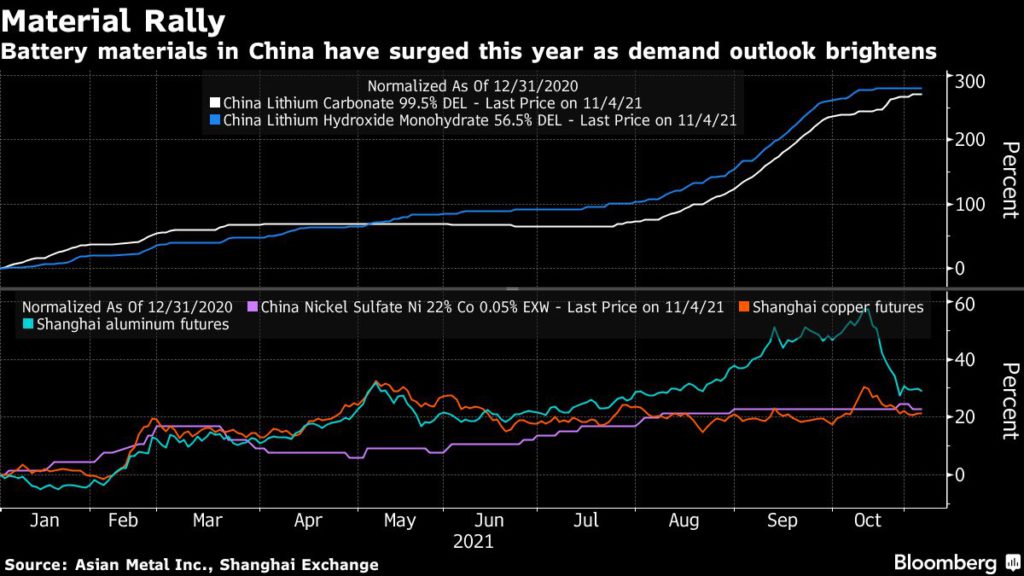A squeeze on lithium has top producer ‘going as fast as we can’

Albemarle Corp., the world’s biggest lithium producer, is expanding as quickly as possible and evaluating new opportunities as buyers of the battery metal struggle to keep up with surging electric-vehicle demand.
The company plans to start sales from a new plant in Chile early 2022 and from an expansion in Western Australia around the middle of the year, as it restarts another mothballed mine. At the same time, it’s evaluating a bid for new contracts in Chile and looking out for possible acquisitions in Australia, North America and Europe, senior executives said in an interview Thursday.
A sharp tightening of the market for lithium — one of the key components in rechargeable batteries — has seen a benchmark index more than double in 2021 and prices in China hit records. With little or no inventory in the system right now and demand set to more than triple by 2025, buyers are snapping up all they can.

Albemarle is “going as fast as we can,” Chief Executive Officer Kent Masters said from the company’s base in Charlotte, North Carolina. “It’s more fun to renew a contract in today’s environment than a year and a half ago.”
The company could bring on a second and third train at its Wodgina venture in Australia once it has the conversion capacity in place. It also intends to bring resources online in the U.S. “a little further down the road,” he added.
In Chile, Albemarle has purchased bidding rules for a new round of contracts being offered by the outgoing government. The company is evaluating whether to bid for areas close to its existing operations, including asking how the contracts may be viewed by the next government, Eric Norris, head of lithium, said alongside Masters.
“It’s a very complex political environment,” Norris said. “We’re doing our due diligence on that process right now.”
Albemarle doesn’t rule out joining the wave of dealmaking sweeping through the industry, although its focus right now is on conversion assets rather than mining resources. Still, the company will take a look at hard rock projects in Western Australia and is “following closely” some resources being developed in North America and Europe, Norris said.
(By James Attwood and Alvaro Ledgard)
{{ commodity.name }}
{{ post.title }}
{{ post.date }}




Comments